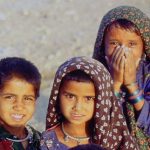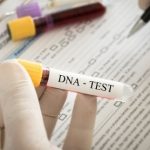There are many organizations world wide that are trying desperately to help find missing children. South African Provincial Police are trying to set up a National DNA Database of Children to assist in locating missing children. Officers are trying to use media, movie theaters, banks and even air lines to show video clops showing pictures and details of the over 114 children who are missing in the provinces. They are also planning to ask malls, trains and taxi operators to distribute pamphlets with photos and details of the missing children
Police announced these plans as officers continued searching for six-year-old Okuhle and three-year-old Mabaxole Maqhubela, the latest additions to the province’s list of missing children. They disappeared in Laingsburg last week on their way from East London to Cape Town by taxi.
During a weekly press briefing, provincial visible policing head Robbie Roberts, said missing children were one of the “biggest concerns” in the South Africa. According to Roberts “on a daily basis a lot of children are reported missing.”
Roberts warned parents not to leave their children alone or let them out of their sight. “And ask yourself when you put your children in the care of somebody, do you really know that person? Do you really trust that person?”
Roberts urged parents to tag their children, including on the tag the child’s name and the parents’ contact details, especially when taking their children to a large public area like a beach. “It’s unbelievable how many children get lost on a beach in one day,” he said.
Roberts said children needed to be taught their home address and parents’ cellphone or landline number. “Once recovered, we find it difficult to get this information from children.” He also urged parents to take photographs of their children so they would always have a recent one.
Provincial Police Commissioner Mzwandile Petros had tasked Roberts, other NGOs, to come up with a more effective plan to tackle the problem.
In the most recent missing children case, Roberts said officers had been unable to find recent photographs of Okuhle Maqhubela and her brother, Mabaxole. The brother and sister went missing from a petrol station in Laingsburg at midnight during a trip from East London to Cape Town, where they would have been reunited with their mother.
Roberts said police in the province would approach the national office to have an identity kit they had created for children, to be distributed in the Western Cape and the rest of the country, if approved.
Once filled out and completed, the kit would include details of the child, a recent photograph, his or her fingerprints, a DNA sample, his or her blood type and details of his or her parents. Dessie Rechner, founder of the NGO Pink Ladies which helps police with search operations, said she was “extremely excited” about the identity kit and proposed database.
Missing children are a huge concern international. Many laboratories are trying to assist in the search for missing children. DNA Identifiers offers a Child Safety Identification Kit like the one described in the article to help keep children safe.




